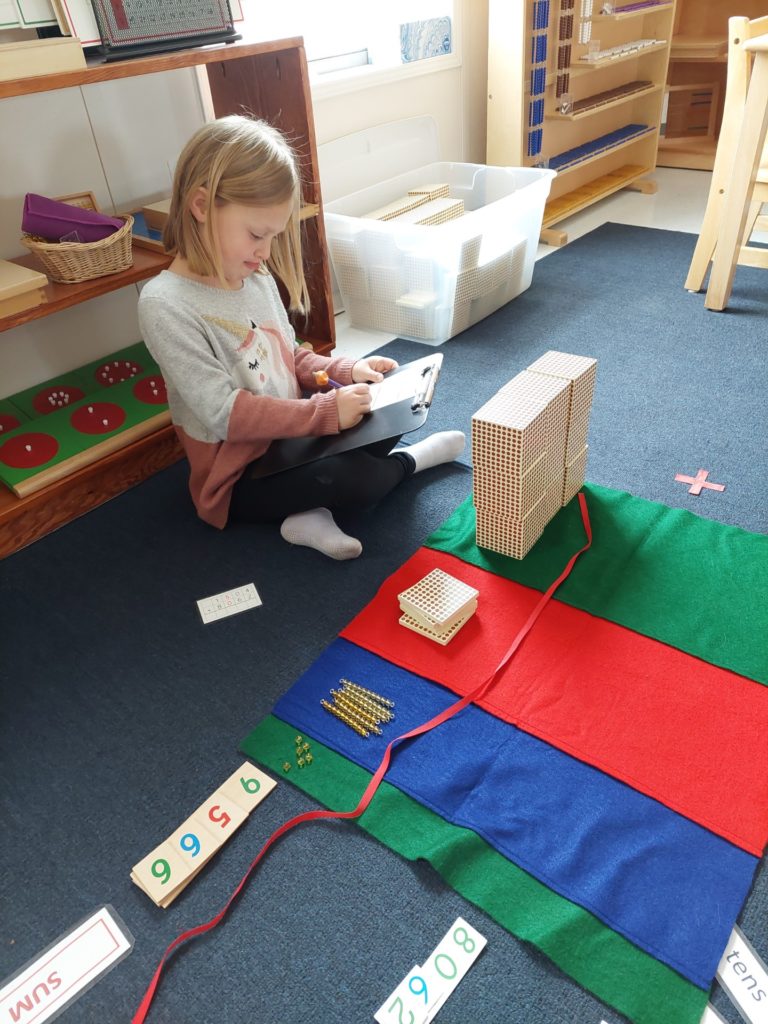Elementary

Elementary Activities
The Lower Elementary class is carefully designed and prepared with appropriate materials that engage children in spontaneous activities of learning. The environment is organized into the following academic areas: mathematics, geometry, language arts, grammar, physical science, history, geography, botany, zoology, and technology.
Students are encouraged to pursue their natural curiosity in a welcoming and nurturing setting. Lessons are given individually or in small groups. Children are encouraged to repeat lessons frequently as repetition leads to the attainment of skills.
As the teacher observes and guides students in their work, children are motivated and supported to reach personal levels of skill mastery in each of the academic areas. Social and practical skills introduced in Primary continue to be developed through teacher modeling and student interactions.
Older children provide the example of appropriate classroom behaviors, as well as the attention of a mentor for the younger children. In this manner the community of children is built and strengthened on mutual respect for others, liberty to move at will, and freedom to make wise choices of work.

How the Programs Work
The learning environment and curriculum are intricately linked to the child’s intense intellectual curiosity and sensitivity to dynamic social relationships. The classroom is designed and prepared with appropriate didactic materials to engage the child. Meanwhile, students progress at their own pace through increasingly complex stages toward defined goals. Experienced and committed teachers and assistants create a student-centered environment that values each child. Elementary students are free to engage in Library, Music, Art, and Physical Education daily.
Elementary Ages 5-9
Learning activities in Lower Elementary reflect the child’s sensitive periods for critical growth in specific cognitive areas. Lower Elementary children acquire academic skills in addition to the development of personal and social conscience. Socially, children become more peer-oriented and intellectual, showing an increased capacity for abstraction and the use of imagination.
Growth Focus Areas:
- Faith and Academic Development
- Expanding Imagination
- Maturing Peer Relationships
- Intellectual Curiosity and Sensitivity

